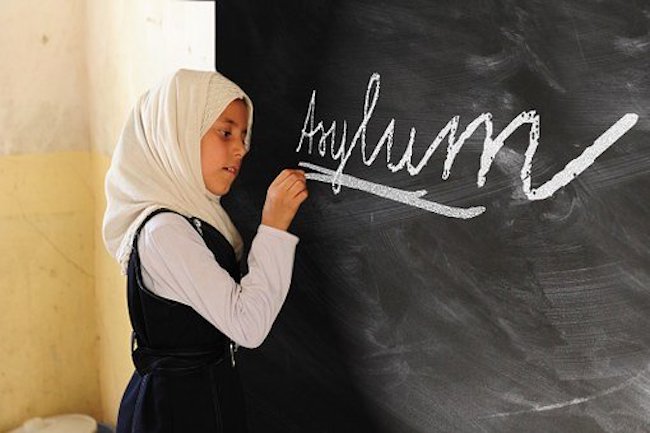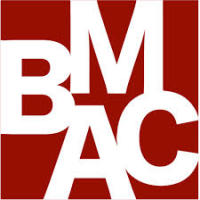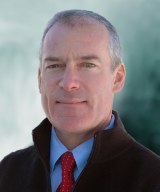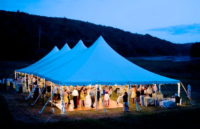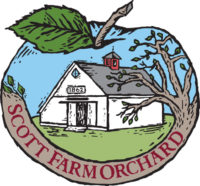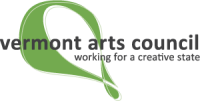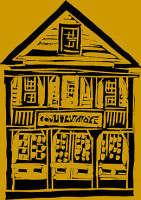A Vermont community helps asylum seekers one family at a time
By Elaine Clift
“They are not European immigrants celebrated at Ellis Island, but they are our continent’s immigrants, here, now. I don’t have a lamp, and there is no golden door, but I lift my eyes to meet them, to see them, and to say, Welcome.”
Those words uttered by Steve Crofter, founder of the Community Asylum Seekers Project (CASP) in Windham County, Vermont, speak volumes about the mission of a volunteer-driven organization begun four years ago to provide basic needs and support for people in the process of seeking asylum in the U.S.
 Crofter was motivated to start CASP when he volunteered with asylum seekers in Texas in 2015. “My favorite place to help was at the showers. Often tears ran down my cheeks. I was so aware of the humanity and the individuality of the people who came to this rest stop.” Among them were a father who had to leave his son behind and a mother who gave her 12-year old daughter birth control pills assuming she would be raped on their journey.
Crofter was motivated to start CASP when he volunteered with asylum seekers in Texas in 2015. “My favorite place to help was at the showers. Often tears ran down my cheeks. I was so aware of the humanity and the individuality of the people who came to this rest stop.” Among them were a father who had to leave his son behind and a mother who gave her 12-year old daughter birth control pills assuming she would be raped on their journey.
A year later, CASP formed as a non-profit organization and began creating living space for an asylum-seeking family, aided by supportive community members who contributed labor and funding in Crofter’s Vermont community. In 2017 the first asylum seeking family was welcomed by CASP, the Board received training on refugees and immigration, and a volunteer case manager was hired. By 2019 a sixth family had arrived, two part time staff were hired, and volunteers received that year’s Unsung Heroes Award from Compassionate Brattleboro.
Today CASP still finds local homes for individuals and families, supports their daily needs, and offers legal guidance as guests navigate the asylum claim process. To date a cadre of volunteers and two staff, guided by a seven-person Board, have helped, and hosted, seventeen adults and children, mainly from Latin America. Currently, six guests are working, seven live independently, and two families have moved to other states. A four-year old child was reunited with her mother after two years apart and two other children were reunited with their mothers.
Susan Brace, who hosted the first guest in 2017 and now serves on the Board, supports the organization. “I need to take action in the face of what asylum seekers go through trying to escape horrendous situations in their home countries that necessitate dangerous journeys to the U.S. border. If we can get some folks out of dangerous detention centers and support their asylum process, we need to reach out to mistreated people.”
Carol Davis, longtime volunteer for CASP, adds, “It’s inspiring to see my friends start their new lives here. It’s gratifying to help them solve problems. Their courage and determination are inspiring. They push on through sadness. They struggle with a new language and culture, and they make their way to independence. It’s an honor to be trusted and to help.”
CASP has connected with diverse community partners. Organizations in other parts of Vermont and New Hampshire ask for advice about creating similar groups. CASP, the only organization in the area with a proven track record in working with asylum seekers, was invited by the Brattleboro Development Credit Corporation to join a team of organizations applying for a three-year grant to increase the capacity of southern Vermont to welcome asylum seekers.
CASP has also been awarded a $14,000 grant from the Indiana-based Clowes Foundation to write a curriculum for language and vocational preparation designed to assist asylum seekers
As CASP grows, public support increases, and government agencies become aware of its work, the organization is addressing new challenges, particularly in light of unwelcoming federal actions against immigrants and asylum seekers. Beyond that, the organization is grappling with key questions about their work. For example, Steve Crofter asks, “What is our place as people with privilege who offer a chance to live in a community? How much should we insist that they do things we ask of them, like learning English?”
Kate Paarlberg-Kvam, formerly an international volunteer for humanitarian organizations, is CASP’s executive director. She reflects on CASP’s growth and development during a global pandemic. “It’s hard in a time of distance and isolation when we can’t offer new families a host.” She says CASP must consider new options in meeting the needs of asylum seekers. But, she adds, “A crisis can be an important introspective moment. This is a time for us to reflect on what we have done in our first four years, what we need to explore, what works and what needs tweaking.”
Much discussion among board and staff members revolves around heightened awareness of how CASP’s work segues with and is inspired by the racial justice movement, Paarlberg-Kvam says. “We need to be careful with the work we’re doing. We have the racial justice movement to thank for shining a spotlight on questions that are important to our work. This is a transformative moment. We need to look at interconnecting dynamics as we work to transform our community in holistic ways that value what new Vermonters bring to our towns.”
While CASP grapples with those issues its guests feel grateful for the help they’ve received. “We feel good being in the U.S. and feeling free,” say two brothers who arrived in 2018. Despite experiencing loneliness after moving into their own apartment, and the challenge of adapting to Vermont winters and a new language, they are thankful for CASP friends who “are very good people and have helped a lot.”
Adds a woman from Honduras who arrived with her partner in 2019, “CASP gave us a roof over our heads, food and many other things. We are very grateful and we feel fortunate to have come here. Good people surround us. We know we are not alone. We have people who support us from their hearts. Their smiles fill us with emotion.”
Elayne Clift is a writer, and a CASP volunteer. She lives in Saxtons River, Vt.


